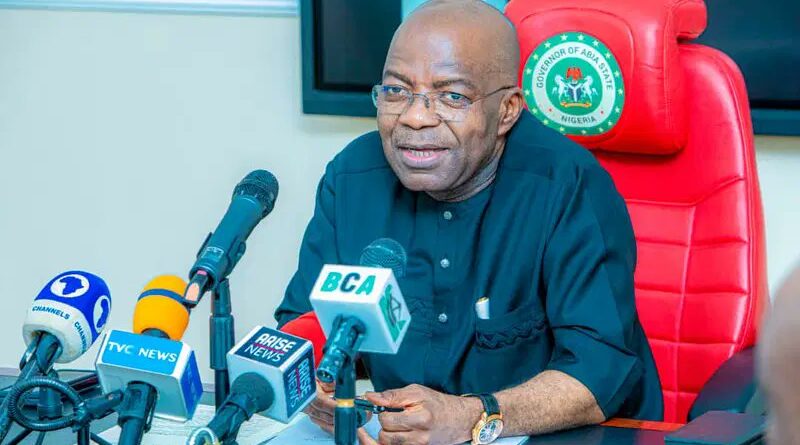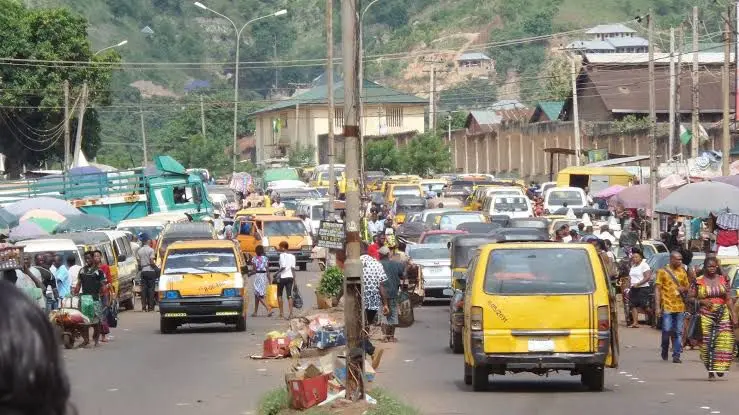At the World Bank and International Monetary Fund (IMF) headquarters in Washington DC, images announcing the commencement of the annual meetings of the fund and bank adorn huge walls.
There are inscriptions advocating global trade, climate concerns, debt relief issues, as well as public health and other developmental challenges around the world, especially in developing economies.
Several metres away from the World Bank/IMF buildings, a small crowd of excited visitors and revellers gather around the Pennsylvania Avenue, overlooking the White House, the seat of the U.S. president.
Around the avenue, a small inscription announces some ongoing renovation efforts, ahead of the change of baton at the White House next year.
The IMF/World Bank meetings begin today, Monday, while the U.S. elections have been scheduled for 5 November. Both developments are central to conversations around global trade, multilateralism and economic growth.
“You could feel the pulse of the people; everywhere you go, there is a mixture of excitement and worry, especially among immigrants,” a Washington-based taxi driver, who identifies himself simply as Bob, originally from Ethiopia, told PREMIUM TIMES.
“The election is very crucial,” he said, driving down a street in NW Washington.
Nigerians need credible journalism. Help us report it.
Support journalism driven by facts, created by Nigerians for Nigerians. Our thorough, researched reporting relies on the support of readers like you.
Help us maintain free and accessible news for all with a small donation.
Every contribution guarantees that we can keep delivering important stories —no paywalls, just quality journalism.
Array of discussion points
Economic experts and global finance chiefs are gathered in Washington this week to discuss the future of global trade, finance and related climate actions.
The discussions hold amid uncertainty surrounding the wars in the Middle East and Europe, the Chinese economy and a crucial U.S. presidential election that could generate new trade battles and potentially weaken multilateral cooperation.
Last Thursday, the Managing Director of the International Monetary Fund Managing, Kristalina Georgieva, said that she expected U.S. presidential candidates Donald Trump and Kamala Harris to take a “very pragmatic” approach to the IMF and the World Bank.
Although Mr Trump has distanced himself from the project, the Republican “Project 2025″ agenda calls for U.S. withdrawal from the IMF and World Bank to pursue only bilateral development and financial aid in line with “U.S. interests”.
Ms Harris, who hasn’t as much expressed her views on multilateralism, is expected to follow in the footsteps of the Joe Biden administration’s policy on trade, international cooperation and multilateralism.
Ms Georgieva said it was up to the American people to choose their leader because she has had a positive experience working with current and past U.S. administrations.
“My experience with the U.S. – any administration – has been always very positive… The U.S. is very pragmatic. It brings a can-do attitude. It is demanding, and I like that,” she said.
But speaking further, she raised concerns about outcomes that could stifle global trade, noting that “major players, driven by national security concerns, are increasingly resorting to industrial policy and protectionism, creating one trade restriction after another.”
The U.S. is the largest shareholder in both the IMF and the World Bank, putting it in a strategic position when it comes to decision-making. It holds effective veto power over major decisions.
Chinese Manufacturing Concern
Another major concern of experts at the IMF and World Bank annual meetings is the growing trade tension over a major flood of Chinese exports.
Ms Georgieva said last Thursday that China could grow at a significantly higher pace if it makes changes to give its consumers the confidence to spend more.
“China’s at the fork in the road. If they continue with their current model, which is export-led growth, there would be trouble. Why? Because the Chinese economy has grown to a point where China’s exports are no more a minor factor in global trade,” she told Reuters in an interview.
China can no longer rely on “some miracle that would retain an export-led model in this large economy as a viable vehicle,” she noted.
In the absence of domestic demand in China, manufacturing output has been diverted to exports, leading the U.S., Europe and others to raise tariff barriers to protect workers and industries.
Mr Trump has vowed to impose tariffs of 60 per cent or more on imports from China and 10 per cent on those from other countries, ostensibly as part of a return to his “America First” retreat from multilateralism.
Against the backdrop of concerns over trade restrictions, Ms Georgieva warned that trade “will not be the same engine of growth as before,” because restrictions are “like pouring cold water on an already-lukewarm world economy.”
She added: “We live in a mistrustful, fragmented world where national security has risen to the top of the list of concerns for many countries. This has happened before — but never in a time of such high economic co-dependence. My argument is that we must not allow this reality to become an excuse to do nothing to prevent a further fracturing of the global economy.”
Last week, World Bank President Ajay Banga credited Mr Trump for increasing investment in the International Bank for Reconstruction and Development during his presidency, which offers loans to middle-income developing countries.
“Then the question will be, how will the nuances of each administration be different? I don’t know yet so I’m not going to speculate on how to deal with them,” he said.
(Sub-Saharan) Africa
At the meetings, issues impacting economies in Sub-Saharan Africa would dominate discussions in addition to insights on the Regional Economic Outlook on Friday, 25 October.
Abebe Aemro Selassie, the Director of African Department, will present the latest outlook for the region, offering crucial insights into the region’s economic landscape.
Before then, on Wednesday, Wale Edun, Nigeria’s finance minister and coordinating minister of the economy, will be in a conversation on how to explore options for countries faced with liquidity challenges amid elevated development needs, domestic reforms to boost growth and mobilize domestic resources, external financial support from multilateral and bilateral partners, and mobilization of private sector inflows at affordable cost, including credit enhancements.
Mr Edun would also feature in a conversation on (debt) sustainability concerns, alongside Iyabo Masha, Director of the G-24 Secretariat; Ralph Recto, secretary of finance in the Philippines; and Candelaria Moroni, Undersecretary for International Coordination, Argentina.
Support PREMIUM TIMES' journalism of integrity and credibility
At Premium Times, we firmly believe in the importance of high-quality journalism. Recognizing that not everyone can afford costly news subscriptions, we are dedicated to delivering meticulously researched, fact-checked news that remains freely accessible to all.
Whether you turn to Premium Times for daily updates, in-depth investigations into pressing national issues, or entertaining trending stories, we value your readership.
It’s essential to acknowledge that news production incurs expenses, and we take pride in never placing our stories behind a prohibitive paywall.
Would you consider supporting us with a modest contribution on a monthly basis to help maintain our commitment to free, accessible news?
TEXT AD: Call Willie - +2348098788999

















 English (US) ·
English (US) ·